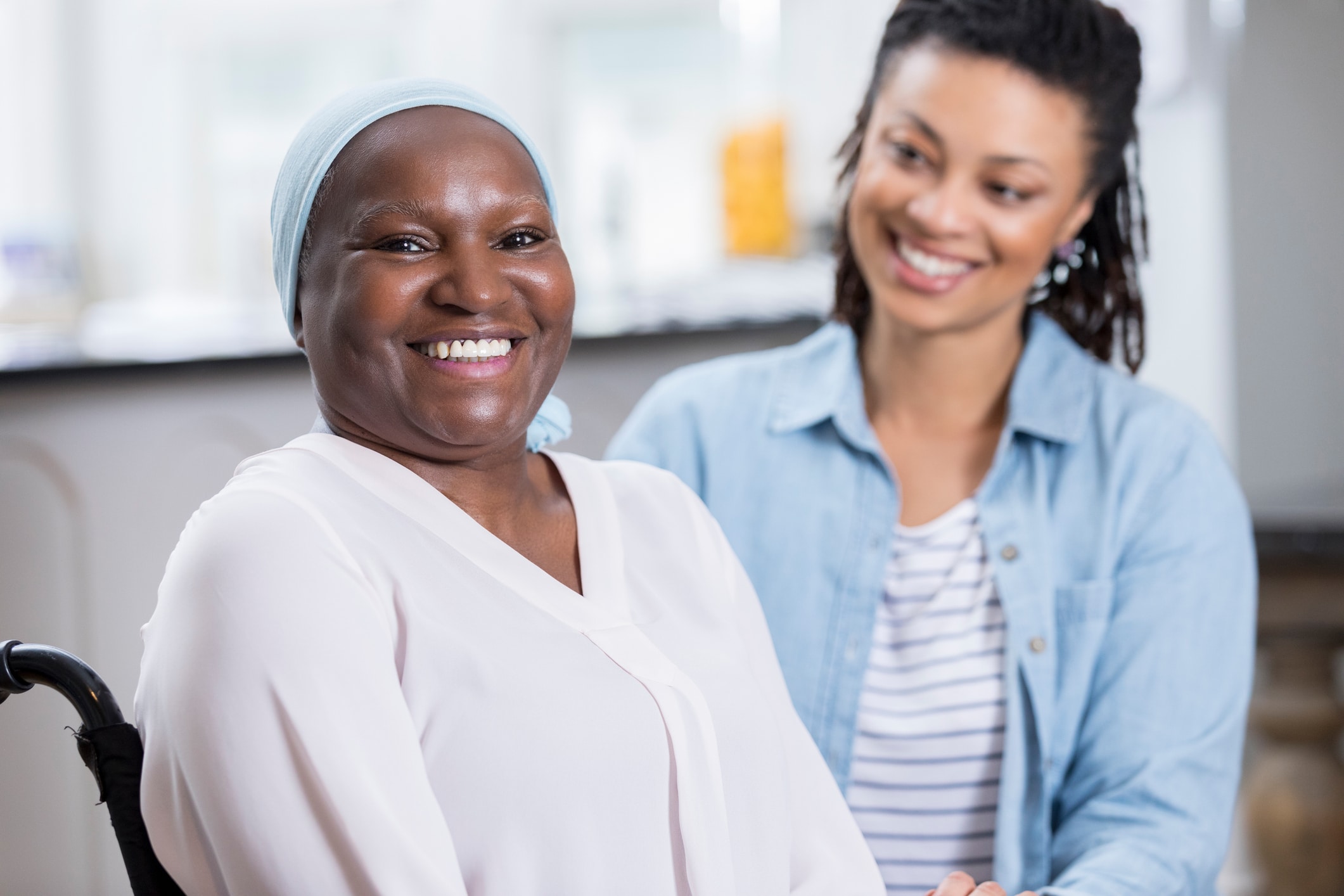
There are many questions and overwhelming feelings that can accompany a cancer diagnosis. It’s easy to feel caught up in thoughts about what treatment will look like and how your lifestyle may change, but many forget to think about rehabilitation plans and programs that can provide benefit throughout a cancer journey.
What is Cancer Rehabilitation?
Cancer rehabilitation is a provider-supervised program available to patients with any cancer diagnosis, as each cancer and its treatments can affect a wide variety of functional impairments that can be improved with rehabilitation intervention.
Cancer rehabilitation is available at any time along a patient’s cancer journey, whether the patient was just diagnosed, is actively receiving cancer treatments or is on surveillance management. Rehabilitation programs work to uniquely cater to cancer diagnoses, the treatments patients may require, their comorbid conditions and other specific needs.
Many cancer patients experience fatigue, mobility difficulty or changes, weakness, neuropathy, lymphedema, balance impairment, cognitive changes, speech and swallow changes and difficulty with daily tasks such as bathing and dressing.
More than 65% of cancer patients have at least one need for rehabilitation, and less than 10% of these needs get addressed. It is important for patients to know cancer rehabilitation services are available to them, and it is important for providers to know rehabilitation can make a dramatic, positive impact on a patient’s well-being.
What Does Rehabilitation Look Like for Sarcoma Patients?
Due to the wide array of sarcoma variations and diagnoses, previous health history and personal preferences, sarcoma patients face unique treatment plans. Cancer rehabilitation also must be tailored to the sarcoma’s location in the patient’s body, the treatment side effects the patient is experiencing and other needs that may arise.
For example, if a sarcoma is diagnosed in an extremity, the patient may have difficulties with strength, joint range of motion, mobility and pain. Their rehabilitation may include physical development and movement exercises. Alternatively, if the patient experiences side effects from chemotherapy, such as neuropathy or cognitive changes, rehabilitation may include memory-based activities.
Power of U – Patient and Provider Rehabilitation Story
For sarcoma survivor and cancer rehabilitation provider, Megan B. Nelson, M.D., understanding the impact of rehabilitation and increasing awareness to providers and patients is her most important mission.
“My cancer was in my left leg and I had three muscles removed from my thigh and a gastrocnemius flap. I had to learn to walk again after my surgeries, and, today, I still lack knee range of motion and deal with my side effect of lymphedema,” explained Dr. Nelson.
Dr. Nelson credits her rehabilitation experience for helping her re-develop a sense of independence and minimize physical and mental limitations.
“I worked really hard in my rehabilitation over the years, and I have reaped the benefits of being able to walk, go up and down stairs and continue to work gratefully,” Dr. Nelson said. “There are some things I cannot do anymore, including running, but without cancer rehabilitation, there would be so much more I wouldn’t be able to do.”
Her personal cancer journey influences her work in cancer rehabilitation, as she feels passionate about helping other patients be as functional and active as they can and reduce restrictions created by their medical diagnoses.
“I recognize the fear and uncertainty cancer creates, the lack of control a patient may feel and the desire to fight for what you can control. Rehabilitation empowers patients by showing them how they can help themselves, and that is powerful. I am grateful for the cancer rehabilitation I received, as I wouldn’t be where I am today without it.”
If you or a loved one are experiencing a cancer diagnosis, learn more about the cancer rehabilitation services available at the UofL Health – Frazier Rehabilitation Institute.









